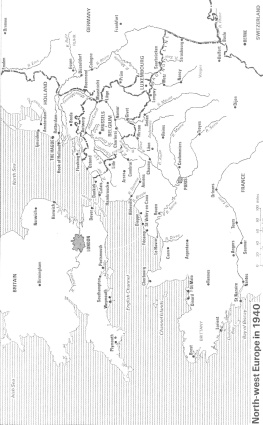20-Year Letter
An Afghaninstan Chronicle
By Benjamin R. Warner
Copyright 2021 Benjamin R. Warner
ISBN 978-1-64663-319-7
All rights reserved. No part of this publication may be reproduced, stored in a retrieval system, or transmitted in any form or by any meanselectronic, mechanical, photocopy, recording, or any otherexcept for brief quotations in printed reviews, without the prior written permission of the author.
Published by
3705 Shore Drive
Virginia Beach, VA 23455
8004354811
www.koehlerbooks.com
Dedication
To Porter, Nash Archie, Ellis, and Kora: I hope someday to share these stories, when you are ready. In the event that day doesnt come, heres a record to show why Im the way I am.
To Betsy: thanks for putting up with someone who constantly burns the candle at both ends. You are my best friend and partner in this crazy life.
THE JOURNEY: STOP ONE
I HAD JUST EXPERIENCED my first flight in the cargo belly of an Airforce C-17 as we touched down in Uzbekistan to drop off a few soldiers from my sister platoon. At that moment, the realness of my situation truly started to hit me. As the cargo door on the tail of the plane began to open, my thoughts were consumed by memories of the last six months of my life and how I came to be here. Our pit stop was scheduled for about thirty minutesjust time enough to load some cargoand then we were off to Afghanistan, my new home away from home. My mind was racing as I started to piece it all together.
My journey started several months earlier, in March 2002, on a rainy Tuesday. I was working at FedEx at the time and we were on a weather delay due to a late inbound shipment. I chose to take the few hours that I had available to me and head to my reserve unit company headquarters about twenty minutes away to finalize a couple of evaluations. While there, I was approached almost immediately by Frank Mann, a member of the battalion leadership team who ran the day-to-day operations of the unit as a civilian. He proclaimed that he was happy to see me and that he had an urgent question. Our command had received its first mobilization order after 9/11 and one of my sister companies in the battalion had been tasked to complete a mission to go to Fort Lewis, Washington for one year. The duty was primarily to support their ROTC (Reserve Officers Training Corps) mission as a backfill while one of the units stationed there was deployed overseas. That deploying unit was short one lieutenant on their command team, and he wanted to know if I was interested in filling that slot and deploying with them. Without thinking, I instantly said yes. Honestly, I dont think there is a mission that they would have asked me to complete that I would have turned down in those days. Patriotism was high, and I wanted so badly to serve my country. And just like that, my life would forever change because of the decision that I made that day.
I spent the next few weeks getting my affairs in order and saying my goodbyes, all the while speculating what my future adventures would be. Soon enough, it was time to pack my car and head to Uniontown, Pennsylvania to start the next chapter of my life.
I knew no one in that unit, nor nothing about it walking in the door, so I carried no preconceived notions. I arrived at the unit to not much fanfare and an extremely dysfunctional situation. The unit had a civilian administrator who also served as a full bird colonel (four ranks senior to me) in the Army Reserves. He ran the day-to-day business and pretty much the weekend business, and whatever he said was the law of the land. He would not be deploying, so as I was trying to take over the unit, there was instant friction. Compounding the problem was the fact that he had ruled the unit with an iron fist for so long that none of the leaders had been able to develop. There were some good young soldiers in the unit, but they were being failed by their leadership. As a new lieutenant to the organization, I knew that I would have a mountain of a task on my hands to convince the soldiers to believe in me and to be ready to follow me. Luckily for me, I had a defining moment with the soldiers right away. Ironically this problem almost derailed the mobilization before it started for me and was my first attempt (of many) at career suicide.
This crucial situation arose from something as simple as hotel accommodations for the unit. This may sound trivial, but one of the first lessons that I ever learned in the Army as a leader was to never screw with a soldiers food or living arrangements. One of the civilians who worked at the unit and helped us with administrative tasks had submitted our lodging packet for a local Fairfield Inn, known to be a hotel friendly to business travelers. They had a small gym, pool, and provided breakfast every morning. In his mind, it was everything that we needed. There were two issues I foresaw with this plan: it had no bar (my concern) and was the most expensive option available (taxpayer concern). The lack of a bar may not make sense to some, as we were there for a specific mission to get ready to deploy, but the last thing I needed while we were training was a bunch of drunk soldiers trying to drive back from a bar and getting DUIs. Soldiers like to blow off steam, particularly as they are preparing for their grand send-off. I wanted to make sure there was an option available to them that didnt require driving. I wanted the Holiday Inn; it had a ton of activities included on its grounds (known at the time as a Holidome ) and met the bar requirement. It was cheaper than the Fairfield Inn, too. But we got neither option. There was a bean counter who saw the request come in and the opportunity to save the taxpayers thousands of dollars on twenty rooms for fifteen nights. He found us a hotel in downtown Uniontown that did not have a brand name, but it did have a bar. In fact, it housed one of the busiest clubs in town. In the beginning, I didnt really think anything of it. I headed to the hotel after the contract was finalized to sign for all the room keys and returned to the reserve center to pass them out. I hadnt been working at my desk more than thirty minutes later when I noticed a line of soldiers at my door. They were in a near-riot situation over the condition of the Uncle Sam-directed rooms. They complained of broken locks, broken windows, blood stains, dirty carpets, and pubic hairs in the bathtubs. I thought that there was no way this could be the truth, so I headed to the hotel myself. It was worse than described. I couldnt help but wonder whether this hotel was reputable or pay-by-the-hour. Sleeping there would have required my government-issued sleeping bag and not taking off my footwear. What I would have given for an iPhone back then to have been able to snap quick photos and send messages instantly. In 2002, I only had a cellular minutes plan and a phone that I could play the snake game on. So, I headed back to the reserve center to raise my complaints.
I started with my company commander, who I had never met and was apparently in the air traveling to Washington state that day as part of our advance party, so he would be no help. My next call was to my battalion headquarters to Mr. Mann, who was the reason I was here in the first place, but he was unavailable. My next call was to my brigade headquarters to the head civilian in charge there, but I could not locate him either. It was a Thursday afternoon and time was critical, so after waiting about five minutes, I escalated my request to my division headquarters. That phone call I was making was the equivalent of the nuclear option . I had just steamrolled through three levels of command and was heading to the general officer level. I knew there were some potential ramifications, but I was championing the health and welfare of my soldiers, so I went half-assed full blast. The civilian that I spoke with at that headquarters basically told me that nothing could take place that late in the afternoon. I was directed to release my soldiers to travel home if they wanted to or they could stay at the Fairfield Inn, as it was a previously approved hotel. I was also told that I needed to compile a room-by-room list of all the deficiencies that I saw and to provide a copy to the hotel. They were to have until the following day to correct the items. At this point, I released my soldiers and headed back to the hotel and started making my list. I was using my inner drill sergeant to inspect these rooms, making sure that I found enough stuff that there was no way that they would make us stay there. I finalized my deficiency dissertation, made a copy, and threw my original on the hotel offices desk. I was super proud of my efforts and decided to retire for the evening back to the Fairfield Inn.














